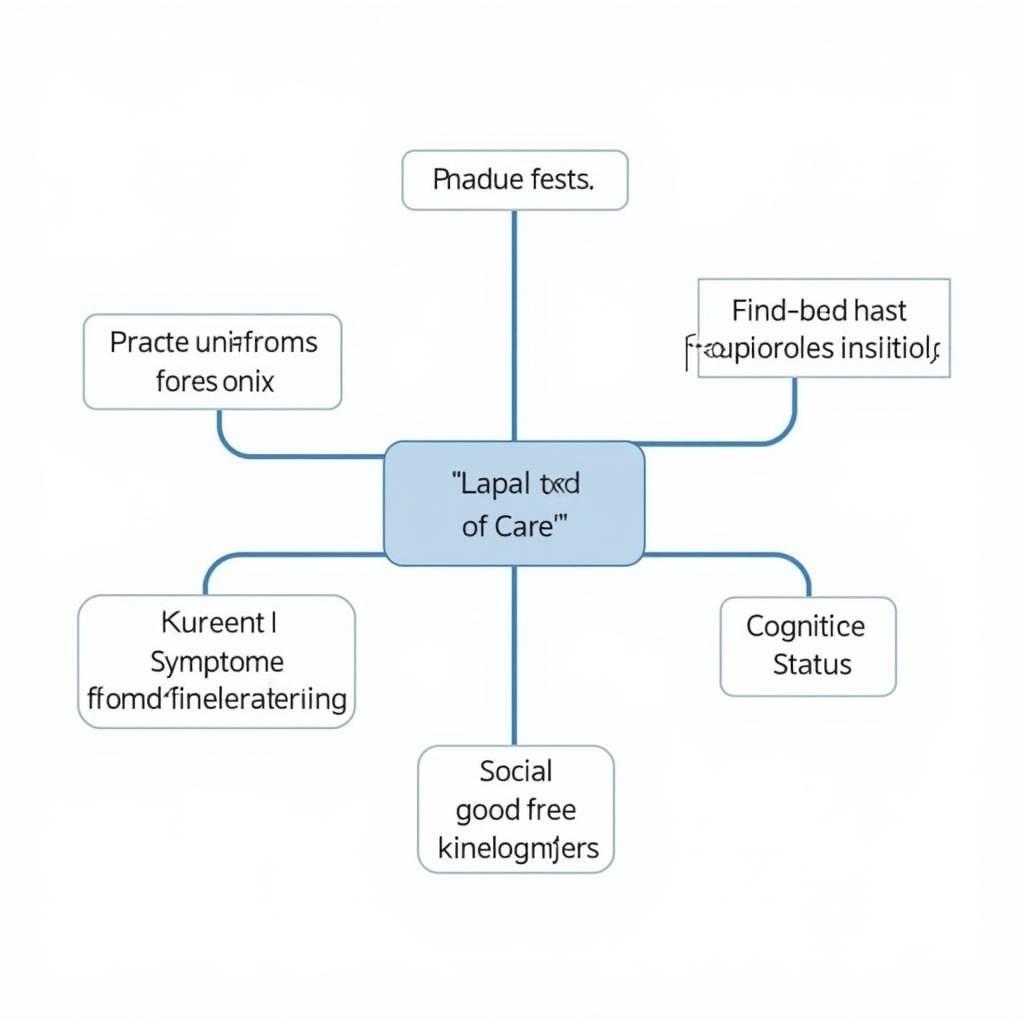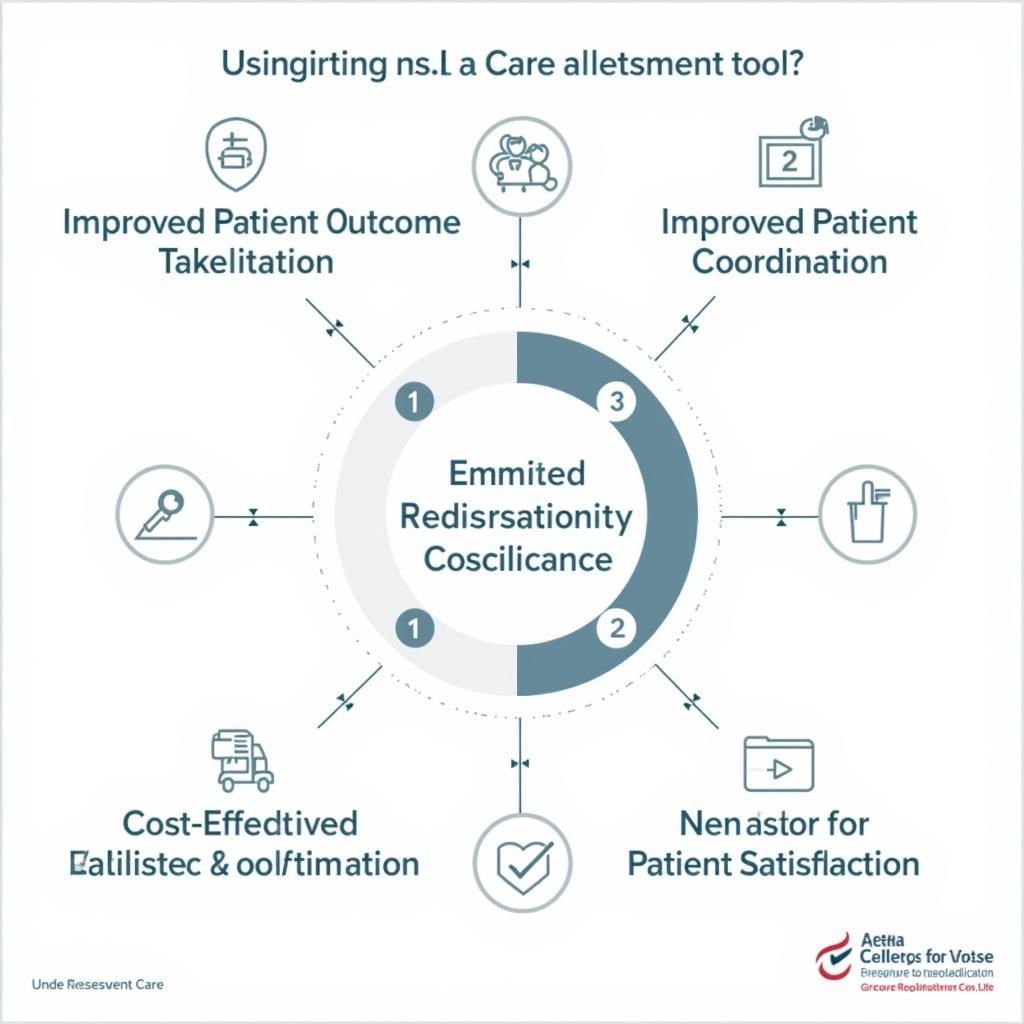The Aetna level of care assessment tool plays a vital role in determining the appropriate level of healthcare services for individuals. This tool helps ensure patients receive the right care, at the right time, and in the right setting, optimizing both health outcomes and cost-effectiveness. From understanding different levels of care to navigating the assessment process, this article will provide a comprehensive overview of the Aetna level of care assessment tool.
What is the Aetna Level of Care Assessment Tool?
The Aetna level of care assessment tool is a standardized method used by Aetna, a major health insurance provider, to evaluate an individual’s needs and recommend the appropriate level of care. This tool considers various factors, including medical history, current symptoms, functional abilities, and social support, to ensure the most appropriate and effective care plan. The assessment helps determine whether an individual requires inpatient hospitalization, outpatient services, home healthcare, or other levels of care.
How Does the Aetna Level of Care Assessment Tool Work?
Aetna’s level of care assessment tool utilizes specific criteria and guidelines to determine the intensity of services required. This process often involves a comprehensive review of medical records, consultations with healthcare professionals, and in some cases, direct assessments of the individual. The tool helps match the patient’s needs with the appropriate level of care, preventing unnecessary hospitalizations and ensuring access to the right resources.
Different Levels of Care Defined
Understanding the various levels of care is crucial for navigating the healthcare system. Aetna’s assessment tool helps distinguish between these levels, ensuring appropriate placement.
- Inpatient Care: This level involves 24-hour medical supervision in a hospital setting, typically for acute conditions requiring intensive treatment.
- Outpatient Care: This encompasses services provided in a clinic or doctor’s office without an overnight stay, including diagnostic tests, therapies, and minor procedures.
- Home Healthcare: This involves professional medical care provided in the patient’s home, often for individuals recovering from illness or injury.
- Skilled Nursing Facility Care: This level provides 24-hour skilled nursing and rehabilitative services in a specialized facility.
- Long-Term Care: This level provides assistance with daily living activities for individuals with chronic conditions or disabilities.
Benefits of Using the Aetna Level of Care Assessment Tool
The Aetna level of care assessment tool offers numerous benefits, including:
- Improved Patient Outcomes: By ensuring appropriate placement, the tool contributes to better health outcomes and a more efficient recovery process.
- Cost-Effectiveness: The tool helps avoid unnecessary or overly intensive levels of care, reducing healthcare costs.
- Enhanced Care Coordination: The assessment facilitates better communication and collaboration among healthcare providers, leading to more coordinated and comprehensive care.
- Increased Patient Satisfaction: Receiving the right level of care can improve patient satisfaction and overall experience with the healthcare system.
Who Conducts the Level of Care Assessment?
The Aetna level of care assessment is typically conducted by trained healthcare professionals, including nurses, physicians, and case managers. These professionals are knowledgeable about Aetna’s criteria and guidelines and can effectively evaluate an individual’s needs.
What Factors are Considered in the Assessment?
The Aetna level of care assessment considers a variety of factors, including:
- Medical History: Pre-existing conditions, previous hospitalizations, and current medications are all taken into account.
- Current Symptoms: The severity and nature of the individual’s symptoms are assessed.
- Functional Abilities: The individual’s ability to perform daily activities, such as bathing, dressing, and eating, is evaluated.
- Social Support: The availability of family and community support is considered.
- Cognitive Status: Mental status and cognitive abilities are assessed.
 Factors Considered in Aetna Level of Care Assessment
Factors Considered in Aetna Level of Care Assessment
How to Prepare for a Level of Care Assessment
Preparing for a level of care assessment can help ensure a smooth and informative process. Gather relevant medical records, including doctor’s notes, test results, and medication lists. Be prepared to discuss your current symptoms, functional limitations, and social support network.
Appealing a Level of Care Decision
If you disagree with the outcome of the level of care assessment, you have the right to appeal the decision. Contact Aetna directly to learn about the appeals process and understand your options.
Level of Care Assessment Tool Aetna: Ensuring Appropriate Care
The Level Of Care Assessment Tool Aetna utilizes plays a critical role in providing individuals with the right level of care, promoting optimal health outcomes, and managing healthcare costs effectively.
 Benefits of Aetna Level of Care Assessment
Benefits of Aetna Level of Care Assessment
FAQ
- What is the purpose of the Aetna level of care assessment tool? (To determine the appropriate level of healthcare services for individuals.)
- Who conducts the Aetna level of care assessment? (Trained healthcare professionals, such as nurses, physicians, and case managers.)
- What factors are considered in the assessment? (Medical history, current symptoms, functional abilities, social support, and cognitive status.)
- Can I appeal a level of care decision? (Yes, you have the right to appeal the decision by contacting Aetna directly.)
- What are the different levels of care? (Inpatient, outpatient, home healthcare, skilled nursing facility, and long-term care.)
- How does the assessment tool benefit patients? (Improved outcomes, cost-effectiveness, better care coordination, and increased satisfaction.)
- How can I prepare for a level of care assessment? (Gather medical records, be ready to discuss symptoms and limitations, and understand your support network.)
Need further assistance? Contact us via WhatsApp: +1(641)206-8880, Email: [email protected] or visit our office at 910 Cedar Lane, Chicago, IL 60605, USA. We offer 24/7 customer support.

Leave a Reply